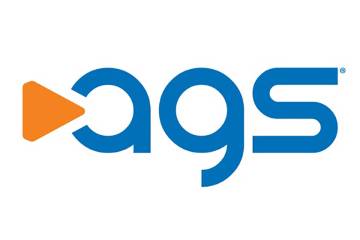Credit unions see hard times
Hard times bring more than just disappointing financial results for some of Southern Nevada's credit unions.
At Cumorah Credit Union, Chief Executive Tony Mook has laid off 42 of 101 employees over the past 18 months to cut costs.
"Letting good people go in a tough economy is basically the toughest thing anybody can do," he said. "It was unprecedented for us," although the credit union has been operating since 1965.
The depressed economy is crippling other credit unions as well. More members are defaulting on loans, losses are growing larger and credit unions' net worths are shrinking.
"As a state, Nevada has been one of hardest hit of the current economic and housing crisis," said Daniel Penrod, senior industry analyst at California and Nevada Credit Union League. "The credit unions have not been immune to the housing crisis or the economic downturn."
So far, the National Credit Union Administration has taken over one financial institution, Community One Federal Credit Union, and merged it with a strong organization based in Utah, America First Credit Union.
Ensign Federal Credit Union and Cumorah Credit Union seem to be the most troubled of the remaining credit unions, according to financial industry insiders. They both serve members of The Church of Jesus Christ of Latter-day Saints. However, Ensign has federal deposit insurance and deposits at Cumorah are backed by a mutual insurance company, American Share Insurance of Dublin, Ohio.
Ensign lost $8 million in the first half of 2009, and its net worth declined to 0.44 percent of total assets on June 30. Federal credit unions with a net worth ratio of 7 percent or more are considered well capitalized. Those with 6 to 7 percent net worth are adequately capitalized, and those with less than 6 percent are undercapitalized.
By comparison, federal regulators forced the merger of Community One with America First after Community One reported its net worth decreased to 0.55 percent.
The percentage of total loans that are delinquent is another key measure that financial analysts watch. Ensign reported that 12.19 percent of its loans were delinquent.
Cumorah showed that 3.7 percent of its loans were delinquent. Its net worth was 3.45 percent on June 30. Cumorah lost $6.4 million in the second quarter ended June 30, up from a loss of $971,000 in the first quarter.
"We're doing everything we can" to improve financial results, Mook said.
Cumorah cut its branch network to four from eight, because each branch cost about $20,000 monthly in expenses, he said.
It has the lowest net worth as a percentage of total assets at the five Southern Nevada credit unions that rely on private deposit insurance from ASI.
Even some of the state's biggest credit unions are struggling financially.
Losses are swelling at $900 million-asset Silver State Schools Credit Union, the biggest credit union in Nevada with 80,000 members.
The credit union lost $15.5 million in the second quarter, up from $9.5 million in the first quarter.
The losses stemmed from $27.6 million the credit union put away for loan loss reserves during the first six months. Delinquent loans at Silver State totaled $42.1 million, up from $37.1 million at the first of the year.
Its net worth slipped to 5.52 percent, which credit unions consider undercapitalized.
Nevada Federal Credit Union, another large institution, remains well capitalized with net worth equaling 10.44 percent of assets.
"Nevada Federal is pleased to have a strong net worth position in this troubled economy," Chief Executive Brad Beal said.
"We continue to see some of our good members adversely impacted by the local economic trends," he said. "Fortunately, the credit union is well positioned to absorb these losses and move forward."
Nevada Federal reported a $9.7 million second-quarter loss, down from a $10.8 million loss in the first quarter.
Clark County Credit Union is doing relatively well for its 38,000 members, who include medical workers and employees of the county and city governments.
"We're hanging in there," Clark County Credit Union Chief Executive Officer Wayne Tew said.
The credit union posted a $2 million second-quarter profit, rebounding from a $14.2 million loss in the first quarter.
"If we can break even the rest of the year, we feel like we will be able to sustain the credit union through a pretty difficult time," Tew said.
To minimize expenses, the credit union froze salaries this year and may continue the freeze next year. It allowed attrition to reduce employment down to 95 from 106 at the peak.
At 70-year-old Boulder Dam Credit Union, "this is the worst year we've seen," manager Bill Ferrence said. Yet, "it's very, very tolerable. The reason is the we started the year with $52 million (in net worth)."
The credit union has more than enough set aside in loan loss provisions to handle any loss, he said, but the credit union cannot do anything about low interest rates. Boulder Dam pays 1 percent on savings accounts, a small percentage but higher than the market for similar products, Ferrence said.
Ferrence figures that nine of every 10 residents of Boulder City are members of the credit union, giving the institution a multiple of the deposit total for three commercial bank competitors.
The credit union and its members have avoided some of the devastation caused by huge housing depreciation rates, because Boulder City restricts growth, and it, therefore, didn't have the massive overbuilding that caused the real estate bubble in the Las Vegas Valley.
SWG Federal Credit Union has benefited by remaining one of the few credit unions that limits members to a closed field, SWG Chief Executive John Drake said.
The credit union members are either employees of Southwest Gas Corp. or family members of employees.
"It is a stable place to work," Drake said. However, that doesn't stop some members from getting a "little greedy" and over extended on debt.
In addition, "loan demand is down, and it will continue to be down," he said.
"I've alerted the board of directors that we really need to look at some cost-cutting measures," Drake said.
Drake is frustrated that federal regulators have not relaxed requirements for extensive and expensive precautions to guard against money laundering although the risks of his members engaging in illegal cash transactions is low at SWG.
He counted 2,500 members.
"I pretty much know each one of their first names," he said.
Costs like these make it hard for small institutions and lead to consolidation, which results in fewer credit unions and banks, he said.
Contact reporter John G. Edwards at jedwards@reviewjournal.com or 702-383-0420.




























